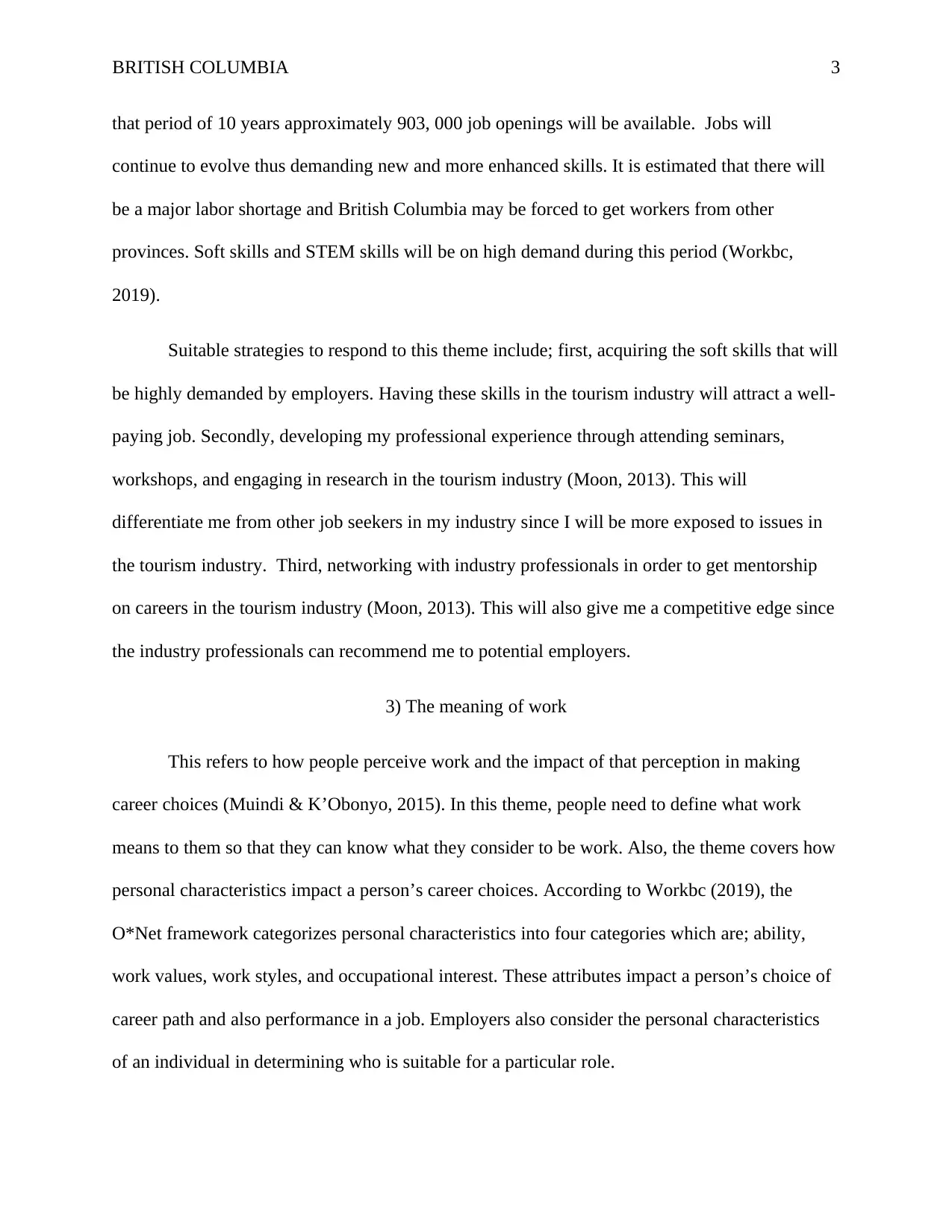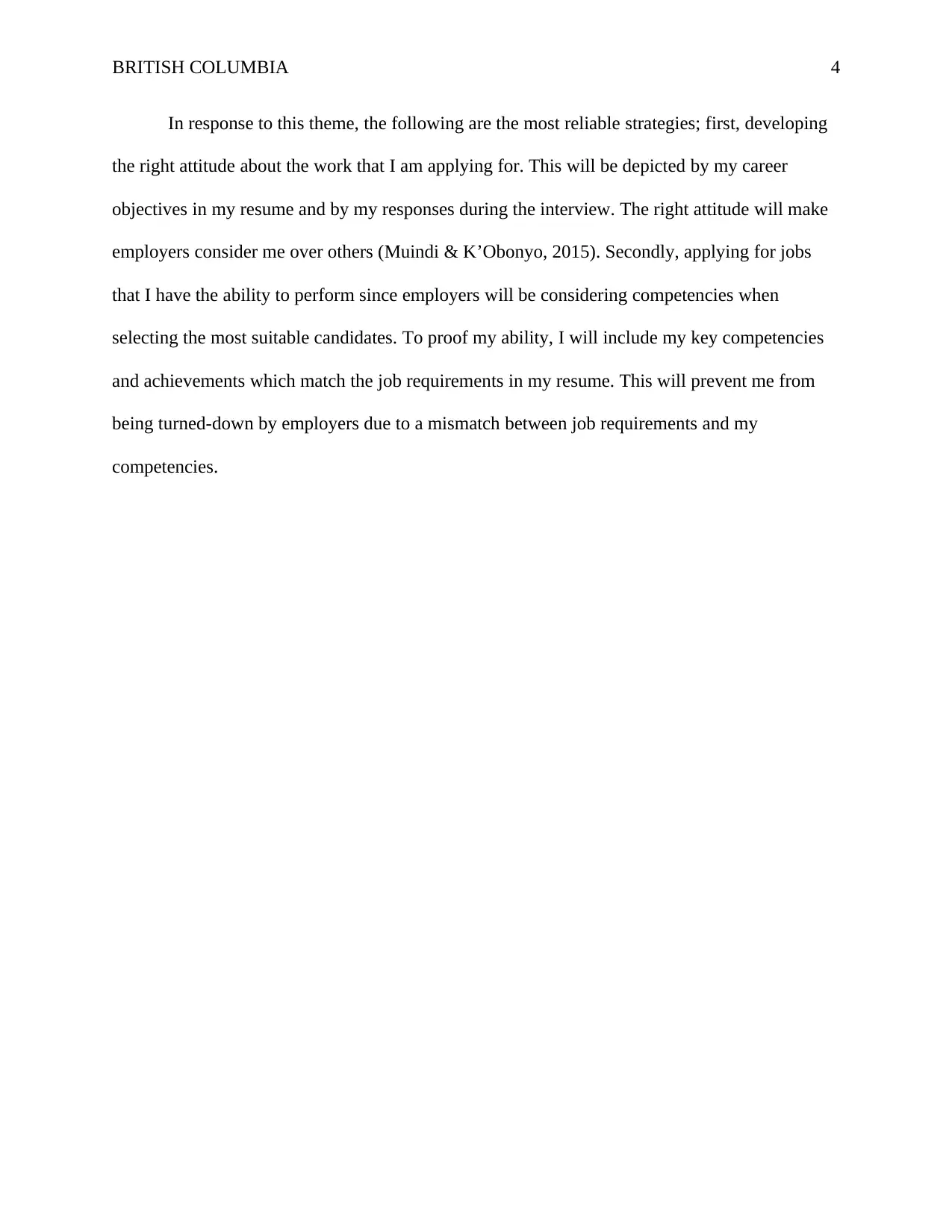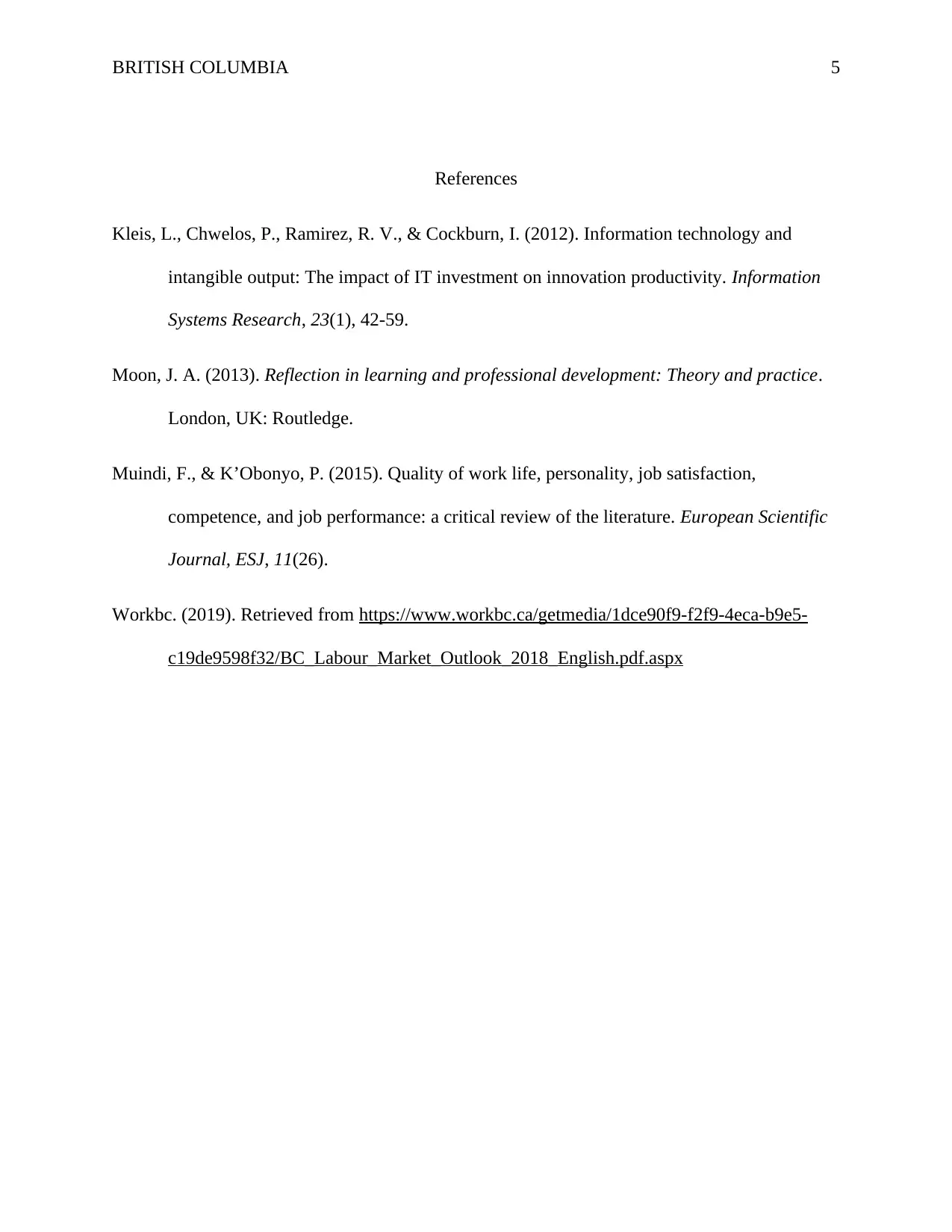TOUR 372-13 Summer 2019: Analyzing BC Labor Market Outlook Report
VerifiedAdded on 2023/03/21
|5
|981
|53
Homework Assignment
AI Summary
This assignment analyzes the British Columbia labor market, focusing on three key emerging themes as identified in the British Columbia Labor Market Outlook Report 2018. The first theme is the automation of work, discussing the impact of technology on job roles and the importance of acquiring relevant skills. The second theme explores the increasing demand for specific skills and competencies, particularly soft skills and STEM skills, and the strategies needed to meet these demands. The third theme examines the evolving meaning of work, emphasizing how personal characteristics and attitudes influence career choices. The assignment provides a detailed analysis of each theme, offering insights into how individuals can adapt and thrive in the changing job market. It also highlights the importance of continuous learning, skill development, and networking to gain a competitive edge in the tourism industry.
1 out of 5








![[object Object]](/_next/static/media/star-bottom.7253800d.svg)